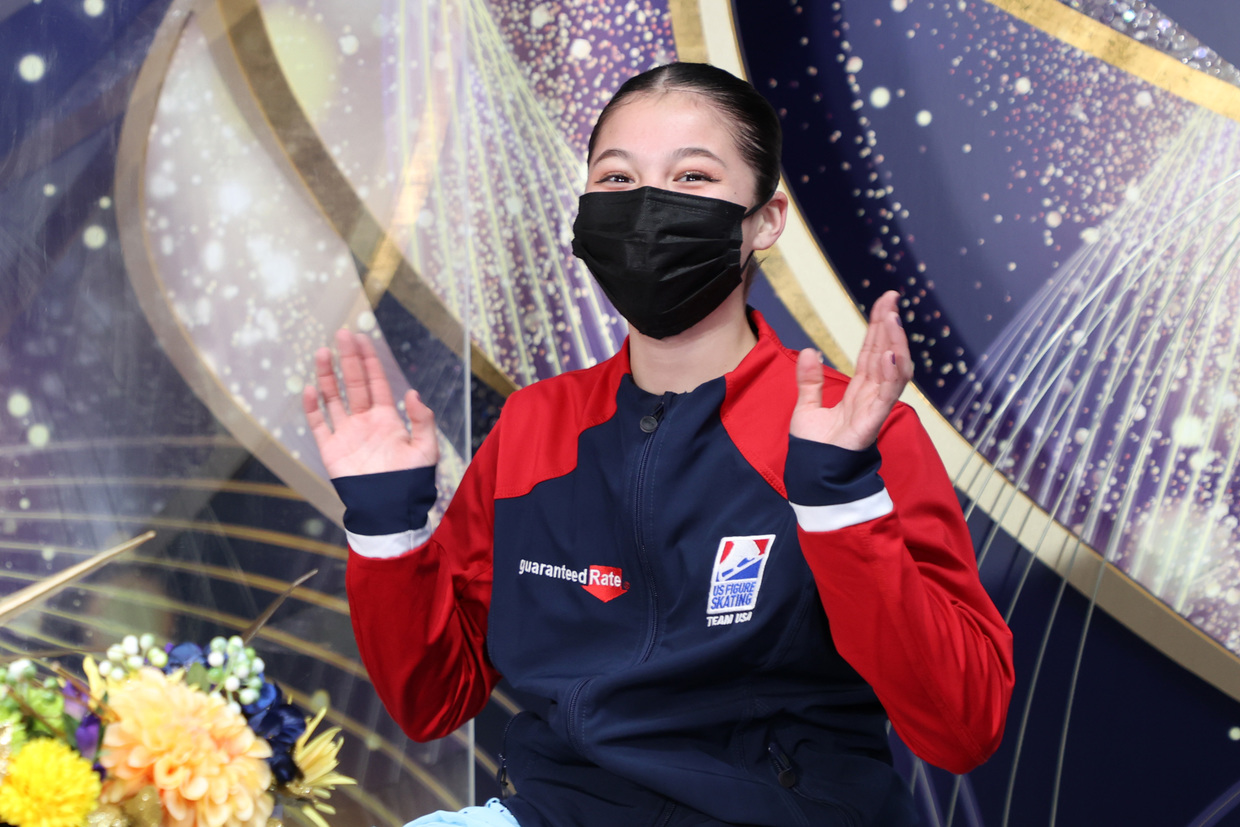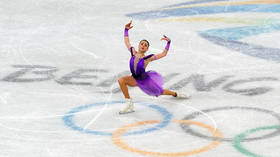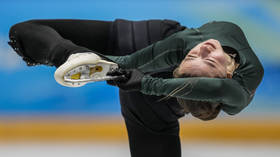US skater’s father claims Valieva decision ‘destroys Olympic spirit’

Arthur Liu, the father of United States figure skating Olympian Alysa Liu, says that the Court of Arbitration for Sport's (CAS) move to allow teenage Russian athlete Kamila Valieva to take part in the Winter Olympics is harmful to the event's reputation.
Valieva, 15, became the first woman to successfully land a quadruple jump at the Olympic Games earlier this month but her achievements were swiftly overtaken by events after it emerged that she had returned a positive sample from a doping test taken in December.
In their findings, CAS noted Valieva's status as a minor and said that any move to suspend her could have caused her “irreparable harm,” while noting that the youngster had not failed a test at the Beijing Olympics.
However, further probes into the circumstances of Valieva's positive test are expected in the coming months, and it was revealed that should Valieva place in the top-three in her upcoming event that the medal ceremony will not take place in Beijing.
The father of Valieva's rival Liu claims that the situation with the Russian, and its handling by competitive sport bodies, casts a pall over the Olympics as a whole.
“She tested positive for a banned drug. What’s not clear about it? She should be out,” Arthur Liu said via the Associated Press.
“That is as simple as that. What kind of message are they sending to millions of young boys and girls in sports – particularly figure skaters? That cheaters are allowed to compete in the Olympics, the holiest competition on the planet. It totally destroys the Olympic spirit.”
Liu also pushed back on the notion that pursuing a ban of Valieva would have caused harm to the teenager, claiming that all athletes regardless of age should be subject to the same set of rules.
“I just simply can't believe the 'irreparable harm' to her. How about the irreparable harm to other clean athletes? You are depriving them,” he said to the website Defector.
“It is going to be very hard for all the clean athletes to see that the Russians are doping and they are going to walk away, run away with all the medals and you can’t do anything about it.
“Why would you want to put your kids into a sport that is so obviously rigged?
“Alysa has been tested since she was 12 or 13 years old and she knows what she is supposed to take and what she’s not supposed to take.”

Liu added that any achievements from the Russian skating team at this year's Olympics should come with a very prominent asterisk.
“Who cares what they do?” he added. “They could land a quintuple jump, who cares!”
Liu's criticism matches that of US sprinter Sha'carri Richardson who was banned from competing at last year's Summer Olympics in Tokyo after submitting a positive test for cannabis; a move she suggests had a racial bias to it, particularly when compared to the handling of Valieva's case.
However, Valieva has earned strong support in her homeland, where the Russian Olympic Committee (ROC) has noted that the skater repeatedly passed doping tests both before and after her positive sample – including at the Beijing Games.
Questions have also been raised as to the delay caused by the test result being reported. Valieva's sample was taken on December 25 at the Russian national championships and sent for analysis at a WADA-accredited laboratory in Sweden.
The results were only reported on February 8, after Valieva had already starred in the Russian figure skating team's gold medal victory in Beijing.














